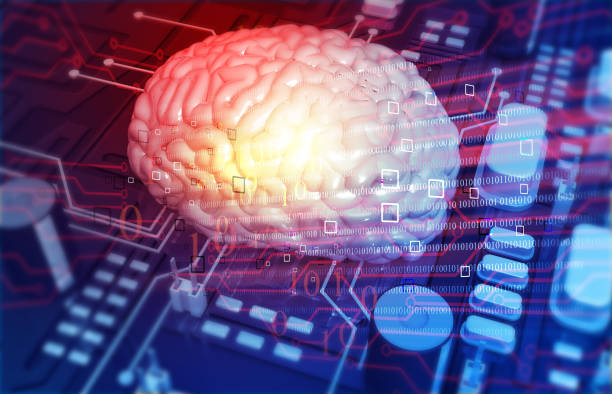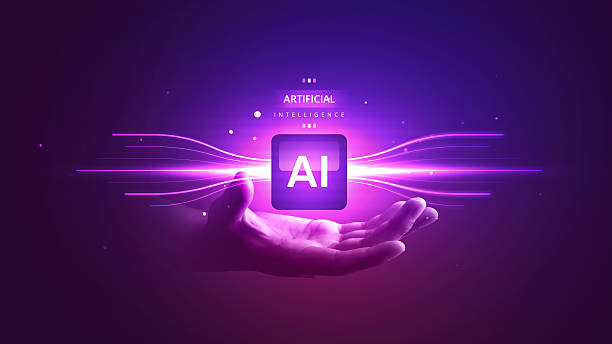### What is Artificial Intelligence and What Are Its Applications?
[Image]
In short, Artificial Intelligence (AI) is a branch of computer science that deals with building machines capable of performing tasks that usually require human intelligence.
These tasks can include learning, problem-solving, pattern recognition, natural language understanding, and decision-making.
#ArtificialIntelligence is no longer a far-fetched concept, but is rapidly infiltrating various aspects of our lives.
The applications of artificial intelligence are very broad and diverse.
Some of the most important include:
* **Self-driving cars** and [advanced driving systems](https://en.wikipedia.org/wiki/Autonomous_car): AI plays a key role in analyzing sensor data and making decisions to guide vehicles.
* **Healthcare**: Diagnosis of diseases, drug development, personalized treatments, and provision of remote care services.
* **Customer Service**: Chatbots, automatic answering of questions, and providing 24/7 support.
* **Finance**: Fraud detection, risk management, providing financial advice, and automating transactions.
* **Manufacturing**: Optimizing processes, quality control, and predicting equipment failures.
* **Education**: Personalizing education, providing automatic feedback, and creating interactive educational content.
This is just a sample of the applications of artificial intelligence, and with the advancement of technology, we will see newer and more creative applications.
>Is your online sales not what you expect? With Rasaweb, solve the problem of low sales and poor user experience forever!
>✅ Increase visitor-to-customer conversion rate
>✅ Create an enjoyable user experience and increase customer trust
>⚡ Take action now for a free consultation!
### History of Artificial Intelligence from Beginning to Today
[Image]
The history of artificial intelligence dates back to the 1950s, when researchers first began exploring the possibility of building machines with intelligent capabilities.
Alan Turing, a British mathematician and computer scientist, provided a benchmark for measuring the intelligence of machines by presenting the Turing test.
In 1956, the first artificial intelligence conference was held at Dartmouth College and officially introduced the field as a new area of research.
In the early decades, artificial intelligence faced a great deal of optimism and hope, but soon faced technical and computational limitations.
This period is known as the “AI winter.”
In the 1980s and 1990s, with advances in hardware and algorithms, interest in artificial intelligence was revived.
The development of expert systems and neural networks was among the important achievements of this era.
In the twenty-first century, with the emergence of Big Data and increasing computing power, artificial intelligence made a big leap.
Machine Learning and Deep Learning, as powerful sub-branches of artificial intelligence, made it possible to solve more complex problems and learn from large volumes of data.
Today, artificial intelligence is transforming various industries and is expected to play an even greater role in the future.
### Machine Learning and Deep Learning, the Beating Heart of Artificial Intelligence
[Image]
Machine Learning and Deep Learning are two main approaches in artificial intelligence that allow machines to learn from data without explicit programming.
Machine learning uses algorithms to analyze data, identify patterns, and make predictions.
These algorithms can improve their performance over time and by receiving new data.
Deep learning is a subset of machine learning that uses artificial neural networks with many layers (deep networks) to model data.
These networks are capable of learning complex and abstract features from data.
Deep learning has performed very well in areas such as image recognition, natural language processing, and speech recognition.
The main difference between machine learning and deep learning is in how features are extracted from data.
In traditional machine learning, engineers must manually extract relevant features.
In deep learning, neural networks automatically learn these features from the data.
Here is a table to compare these two approaches:
[Styled Table Code – see original response]
### Key Algorithms in Artificial Intelligence
[Image]
Artificial intelligence uses a variety of algorithms to perform various tasks.
Some of the key algorithms include:
* **Linear Regression**: To predict a dependent variable based on one or more independent variables.
* **Logistic Regression**: To classify data into two or more categories.
* **Decision Tree**: To create a decision-making model based on a series of rules.
* **Support Vector Machine (SVM)**: To classify data by finding the best boundary between categories.
* **Neural Networks**: To learn complex patterns from data.
* **Clustering Algorithms**: To group similar data into a cluster.
* **Reinforcement Learning Algorithms**: To train an agent to perform a specific task by receiving rewards and penalties.
The choice of the right algorithm depends on the type of data, the type of problem, and the desired goals.
Each algorithm has its own strengths and weaknesses and should be carefully selected.
>Are you dissatisfied with the low sales of your online store?
>Rasaweb is your solution to having a professional and high-selling online store.
>✅ Significant increase in sales and revenue
>✅ Easy and enjoyable shopping experience for customers
>⚡ Get a free consultation from Rasaweb now!
### Natural Language Processing (NLP) and Machine Understanding of Language
[Image]
Natural Language Processing (NLP) is a branch of artificial intelligence that allows machines to understand and generate human language.
The goal of NLP is for computers to be able to communicate with humans in natural language and perform tasks such as machine translation, text summarization, question answering, and sentiment analysis.
NLP uses various techniques such as Syntax Analysis, Semantic Analysis, and Pragmatic Analysis to understand the structure and meaning of language.
Deep learning has also played an important role in the advancement of NLP.
Language models such as BERT and GPT-3 have performed very well in various NLP fields.
The applications of NLP are very broad.
Some of the most important include:
* **Chatbots**: Providing 24/7 support and answering customer questions.
* **Machine Translation**: Automatically translating text from one language to another.
* **Sentiment Analysis**: Detecting people’s emotions and opinions about a product, service, or specific topic.
* **Text Summarization**: Automatically summarizing a long text into a shorter and more useful text.
* **Speech Recognition**: Converting speech to text and vice versa.
### Artificial Intelligence in Iran: Current Status and Future Prospects
[Image]
Artificial intelligence in Iran is also developing as a research and industrial field.
Several universities and research centers in Iran are active in the field of artificial intelligence and conduct diverse research.
The Iranian government also supports the development of artificial intelligence and has implemented programs to promote this technology in the country.
However, artificial intelligence in Iran still faces challenges.
Some of the most important of these challenges include a shortage of skilled professionals, a lack of financial resources and training data, and infrastructural limitations.
To overcome these challenges, there is a need for greater investment in education and research, the development of necessary infrastructure, and the creation of a suitable ecosystem for innovation and entrepreneurship in the field of artificial intelligence.
Despite these challenges, artificial intelligence in Iran has high potential for growth and development.
Iran has a young and educated workforce and is in a good position in terms of geographical location and natural resources.
Using these advantages, Iran can become an important player in the field of artificial intelligence in the region and the world.
Artificial intelligence can transform various industries in Iran, such as oil and gas, agriculture, healthcare, and financial services, and contribute to the country’s economic and social development.
### Ethics in Artificial Intelligence: Challenges and Responsibilities
[Image]
With the expansion of artificial intelligence applications, ethical issues related to this technology have become more important.
Artificial intelligence can have a profound impact on people’s lives and should be developed in such a way that these impacts are positive and constructive.
Some of the most important ethical issues in artificial intelligence include:
* **Discrimination**: Artificial intelligence algorithms can inadvertently reinforce biases that exist in training data.
* **Privacy**: Artificial intelligence needs a large amount of data to function, which may include personal information of individuals.
* **Transparency**: Decisions made by artificial intelligence algorithms may be incomprehensible to humans.
* **Accountability**: In the event of an error or damage, determining responsibility in artificial intelligence systems can be difficult.
* **Security**: Artificial intelligence systems can be vulnerable to cyber attacks.
To address these challenges, there is a need to develop ethical rules and regulations, create technical standards, and provide public education on ethical issues in artificial intelligence.
Developers, policymakers, and users of artificial intelligence must accept their responsibilities for this technology and strive to use it in a way that benefits society.
[Styled Table Code – see original response]
### The Future of Artificial Intelligence and Its Impact on Human Life
[Image]
Artificial intelligence is advancing rapidly and is expected to have a profound impact on human life in the not-too-distant future.
In the future, artificial intelligence will likely be present in all aspects of our lives, including:
* **Work**: Artificial intelligence can automate many jobs, but it will also create new job opportunities.
* **Education**: Artificial intelligence can personalize education and help students learn more effectively.
* **Healthcare**: Artificial intelligence can help diagnose diseases faster and more accurately and provide more effective treatments.
* **Transportation**: Self-driving cars can improve the safety and efficiency of transportation.
* **Entertainment**: Artificial intelligence can provide more fun and interactive experiences.
However, the development of artificial intelligence also comes with challenges.
In order to fully benefit from the advantages of artificial intelligence and avoid its dangers, we must pay attention to the ethical, social, and economic issues related to this technology and find appropriate solutions for them.
Artificial intelligence has a lot of power and should be developed in a way that benefits all people.
>Does your current website create the trust that potential customers should have in your business? If the answer is no, it’s time to have your professional and impactful corporate website with Rasaweb.
>✅ Completely customized design to match your brand identity
>✅ Increased lead generation and credibility of your business in the eyes of customers
>⚡ Contact us for a free consultation!
### Job Opportunities and Challenges in the Field of Artificial Intelligence
[Image]
The growing growth of artificial intelligence has led to the creation of many job opportunities in this field.
Various companies and organizations are looking for skilled professionals in areas such as machine learning, deep learning, natural language processing, and computer vision.
Some of the popular jobs in the field of artificial intelligence include:
* **Data Scientist**: Analyzing data and creating machine learning models.
* **Machine Learning Engineer**: Designing and implementing machine learning systems.
* **Natural Language Processing Engineer**: Developing systems for understanding and generating human language.
* **Computer Vision Engineer**: Developing systems for detecting and analyzing images and videos.
* **Artificial Intelligence Researcher**: Conducting advanced research in the field of artificial intelligence.
To enter these jobs, it is necessary to have specialized knowledge and skills in areas such as mathematics, statistics, computer science, and programming.
Also, having practical experience in artificial intelligence projects and familiarity with related tools and technologies is very important.
However, entering the field of artificial intelligence also comes with challenges.
Competition for artificial intelligence jobs is very high and requires up-to-date and advanced knowledge and skills.
Also, the pace of technological advancement in this field is very high, and professionals must constantly update their knowledge and skills.
[Artificial intelligence](https://www.example.com/important-page) provides very good opportunities for talented and interested people, but it requires a lot of effort and perseverance.
### Artificial Intelligence Learning Resources
[Image]
There are a variety of educational resources available for learning artificial intelligence.
You can use online courses, books, scientific articles, blogs, and online forums to learn about this technology.
Some popular resources include:
* **Online Courses**: Coursera, edX, Udacity, DataCamp
* **Books**: “Deep Learning” by Ian Goodfellow, Yoshua Bengio, and Aaron Courville, “Pattern Recognition and Machine Learning” by Christopher Bishop
* **Blogs**: Towards Data Science, Machine Learning Mastery, Analytics Vidhya
* **Online Forums**: Stack Overflow, Reddit (r/MachineLearning, r/datascience)
When choosing learning resources, pay attention to your level of knowledge and experience.
If you are a beginner, start with resources that explain the basic concepts clearly and simply.
As your knowledge progresses, you can go to more advanced and specialized resources.
Also, try to participate in practical artificial intelligence projects to put your knowledge into practice and gain experience.
Artificial intelligence is a dynamic and evolving field, and continuous learning is essential for success in this field.
[Artificial Intelligence](https://www.example.com/very-important-page) will soon be ubiquitous.
#### Frequently Asked Questions
| Question | Answer |
| ——————————————- | ——————————————————————————————————————————————————————————————————————————————————————————————————————————— |
| 1. What is Artificial Intelligence (AI)? | It is a branch of computer science that aims to create machines capable of simulating human intelligence and performing tasks that require human thinking, such as learning, problem solving, and decision making. |
| 2. What are the main types of AI? | It can be classified into weak AI (Narrow AI) focused on a specific task, general AI (General AI) with comprehensive human capabilities, and super AI (Super AI) that exceeds human intelligence. |
| 3. List some common AI applications. | It includes voice assistants (such as Siri and Alexa), recommendation systems (such as Netflix and Amazon), self-driving cars, facial recognition systems, and spam filters. |
| 4. What is the difference between AI and ML? | AI is the broader concept of creating intelligent machines, while ML is a subset of AI focused on enabling systems to learn from data without explicit programming. |
| 5. What is Deep Learning? | It is a subset of ML that uses multi-layered artificial neural networks (deep neural networks) to process data and discover complex patterns and is used in image and speech recognition. |
| 6. What are the main benefits of AI? | Improving efficiency and productivity, automating repetitive tasks, making better decisions based on big data analysis, and developing solutions to complex problems in fields such as medicine and science. |
| 7. What are the main challenges to AI dev? | It includes the need for massive amounts of high-quality data, privacy and security issues, bias in data and algorithms, and high development and maintenance costs. |
| 8. Does AI raise ethical/social concerns? | Yes, it raises concerns about privacy, algorithmic bias, job loss due to automation, liability for errors made by intelligent systems, and the need for a regulatory framework. |
| 9. How might AI affect the job market? | It can automate some routine jobs, but it will also create new jobs that require advanced skills in developing, operating, and maintaining AI systems. |
| 10. What are promising technologies in AI? | It includes advanced NLP (such as large language models like ChatGPT), computer vision, robotics, and Generative AI. |
**And other Rasa Web advertising agency services in the field of advertising**
**Smart Digital Advertising:** A new service to increase user engagement through attractive user interface design.
**Smart Social Media:** Designed for businesses looking to manage campaigns through precise audience targeting.
**Smart Brand Identity:** Designed for businesses looking to grow online by using real data.
**Smart Direct Marketing:** A combination of creativity and technology to attract customers through intelligent data analysis.
**Smart Marketing Automation:** Professional optimization to attract customers using attractive user interface design.
**And more than hundreds of other services in the field of internet advertising, advertising consulting and organizational solutions**
**Internet Advertising | Advertising Strategy | Advertisement Report**
#### Sources
[What is artificial intelligence and what are its applications?](https://virgool.io/@mostafakiani/%D9%87%D9%88%D8%B4-%D9%85%D8%B5%D9%86%D9%88%D8%B9%DB%8C-%DA%86%DB%8C%D8%B3%D8%AA-vqymly4298xq)
,[The state of AI in 5 charts](https://www.technologyreview.com/2023/05/17/1073161/the-state-of-ai-in-5-charts/)
,[What is artificial intelligence? Concepts and applications of artificial intelligence](https://www.aparat.com/v/5qXg6/%D9%87%D9%88%D8%B4_%D9%85%D8%B5%D9%86%D9%88%D8%B9%DB%8C_%DA%86%DB%8C%D8%B3%D8%AA%D8%9F_%D9%85%D9%81%D8%A7%D9%87%DB%8C%D9%85_%D9%88_%DA%A9%D8%A7%D8%B1%D8%A8%D8%B1%D8%AF%D9%87%D8%A7%DB%8C_%D9%87%D9%88%D8%B4_%D9%85%D8%B5%D9%86%D9%88%D8%B9%DB%8C)
,[What is Artificial Intelligence?](https://www.ibm.com/topics/artificial-intelligence)
? To promote your business in the digital world and reach the peak of success, Rasaweb Afrin Digital Marketing Agency is with you by providing comprehensive and intelligent services.
Our expertise is in increasing your visibility, attracting target customers, and sustainably growing your brand. From [professional website design](https://share.google/mQBI2uMQ2UUYhTmkx) and SEO to social media management and advertising campaigns, you will find everything you need to shine online in Rasaweb Afrin.
Transform the future of your business in the online space with an experienced and dedicated team. Contact us today and get a free consultation.
📍 Tehran, Mirdamad Street, next to the Central Bank, South Kazerun Alley, Ramin Alley No. 6
✉️ [info@idiads.com](mailto:info@idiads.com)
📱 [09124438174](tel:+989124438174)
📱 [09390858526](tel:+989390858526)
📞 [02126406207](tel:+982126406207)




